Is Climate Change Real? Or Just a Delusion Created By Liberals?...
Rational Nation USA
Purveyor of Truth
At one time being a skeptic of climate change (global warming) is what seemed to be a reasonable position. It even sounded plausible to me that left leaning scientists (most are for explainable logical reasons) were in cahoots with left leaning politicians who saw climate change as an avenue to enact legislation (cap and trade) and an pathway to exact more taxes on business. Taxes which could be used to fill the coffers of government so government could spend more on social programs that may ultimately lead to greater dependendency on government.
Sound familiar?
At this juncture in my thought process (aided by evaluating factual data) the narrative now seems more geared to preserving the bottom line profit motivation of companies whose business it is to grow exceedingly wealthy by exploiting and expanding fossil fuel consumption. Of course my re-evaluation has been an evolving process over time. But given the following (which certainly supports my new found premise) continuing skepticism just seems like the elixir of the fool.
No doubt the rightwing corporatists, and politicians who are getting well greased by corporate money, will deny this and point to it as just another leftwing lie and attempt to manipulate the perception of the general public. These folks know a great deal about manipulation. They've been doing it for decades.
Purveyor of Truth
At one time being a skeptic of climate change (global warming) is what seemed to be a reasonable position. It even sounded plausible to me that left leaning scientists (most are for explainable logical reasons) were in cahoots with left leaning politicians who saw climate change as an avenue to enact legislation (cap and trade) and an pathway to exact more taxes on business. Taxes which could be used to fill the coffers of government so government could spend more on social programs that may ultimately lead to greater dependendency on government.
Sound familiar?
At this juncture in my thought process (aided by evaluating factual data) the narrative now seems more geared to preserving the bottom line profit motivation of companies whose business it is to grow exceedingly wealthy by exploiting and expanding fossil fuel consumption. Of course my re-evaluation has been an evolving process over time. But given the following (which certainly supports my new found premise) continuing skepticism just seems like the elixir of the fool.
The New Yorker - Wednesday morning, journalists at InsideClimate News, a Web site that has won the Pulitzer Prize for its reporting on oil spills, published the first installment of a multi-part exposé that will be appearing over the next month. The documents they have compiled and the interviews they have conducted with retired employees and officials show that, as early as 1977, Exxon (now ExxonMobil, one of the world’s largest oil companies) knew that its main product would heat up the planet disastrously. This did not prevent the company from then spending decades helping to organize the campaigns of disinformation and denial that have slowed—perhaps fatally—the planet’s response to global warming.
There’s a sense, of course, in which one already assumed that this was the case. Everyone who’s been paying attention has known about climate change for decades now. But it turns out Exxon didn’t just “know” about climate change: it conducted some of the original research. In the nineteen-seventies and eighties, the company employed top scientists who worked side by side with university researchers and the Department of Energy, even outfitting one of the company’s tankers with special sensors and sending it on a cruise to gather CO2 readings over the ocean. By 1977, an Exxon senior scientist named James Black was, according to his own notes, able to tell the company’s management committee that there was “general scientific agreement” that what was then called the greenhouse effect was most likely caused by man-made CO2; a year later, speaking to an even wider audience inside the company, he said that research indicated that if we doubled the amount of carbon dioxide in the planet’s atmosphere, we would increase temperatures two to three degrees Celsius. That’s just about where the scientific consensus lies to this day. “Present thinking,” Black wrote in summary, “holds that man has a time window of five to ten years before the need for hard decisions regarding changes in energy strategies might become critical.”
Those numbers were about right, too. It was precisely ten years later—after a decade in which Exxon scientists continued to do systematic climate research that showed, as one internal report put it, that stopping “global warming would require major reductions in fossil fuel combustion”—that NASA scientist James Hansen took climate change to the broader public, telling a congressional hearing, in June of 1988, that the planet was already warming. And how did Exxon respond? By saying that its own independent research supported Hansen’s findings? By changing the company’s focus to renewable technology?
That didn’t happen. Exxon responded, instead, by helping to set up or fund extreme climate-denial campaigns. (In a blog post responding to the I.C.N. report, the company said that the documents were “cherry-picked” to “distort our history of pioneering climate science research” and efforts to reduce emissions.) The company worked with veterans of the tobacco industry to try and infuse the climate debate with doubt. Lee Raymond, who became the Exxon C.E.O. in 1993—and was a senior executive throughout the decade that Exxon had studied climate science—gave a key speech to a group of Chinese leaders and oil industry executives in 1997, on the eve of treaty negotiations in Kyoto. He told them that the globe was cooling, and that government action to limit carbon emissions “defies common sense.” In recent years, it’s gotten so hot (InsideClimate’s exposé coincided with the release of data showing that this past summer was the United States’ hottest in recorded history) that there’s no use denying it any more; Raymond’s successor, Rex Tillerson, has grudgingly accepted climate change as real, but has referred to it as an “engineering problem.” In May, at a shareholders’ meeting, he mocked renewable energy, and said that “mankind has this enormous capacity to deal with adversity,” which would stand it in good stead in the case of “inclement weather” that “may or may not be induced by climate change.”
The influence of the oil industry is essentially undiminished, even now. The Obama Administration may have stood up to Big Coal, but the richer Big Oil got permission this summer to drill in the Arctic; Washington may soon grant the rights for offshore drilling along the Atlantic seaboard, and end a longstanding ban on oil exports. All these measures help drive the flow of carbon into the atmosphere—the flow of carbon that Exxon knew almost forty years ago would likely be disastrous.
We’ve gotten so inured to this kind of corporate power that the report in InsideClimate News received relatively little coverage. The big news of the day on social media came from Irving, Texas, where the police handcuffed a young Muslim boy for taking his homemade alarm clock to school; all day people tweeted #IStandWithAhmed, and rightly so. It’s wondrous to see the power of an Internet-enabled world shining the light on particular (and in this case telling) injustice; there’s a principal and a police chief in Irving that will likely think differently next time. But we badly need the same kind of focus on the long-lasting, underlying abuses of corporate might. As it happens, Exxon is based in Irving, Texas too.
No doubt the rightwing corporatists, and politicians who are getting well greased by corporate money, will deny this and point to it as just another leftwing lie and attempt to manipulate the perception of the general public. These folks know a great deal about manipulation. They've been doing it for decades.

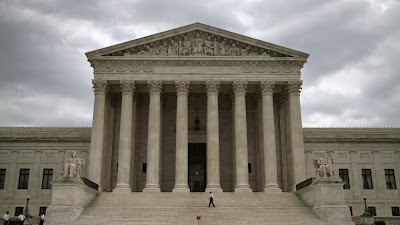
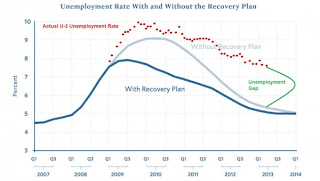


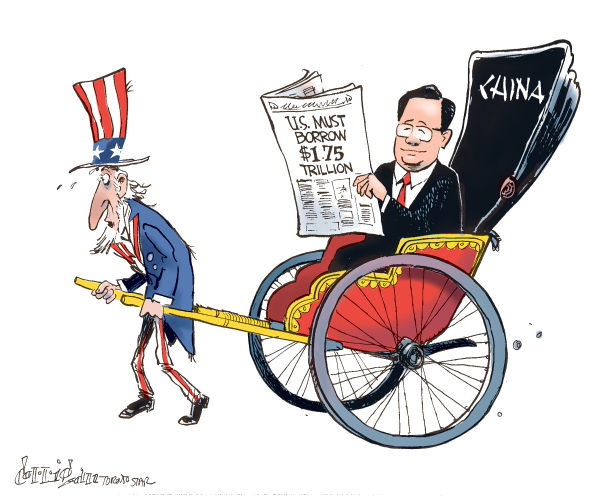
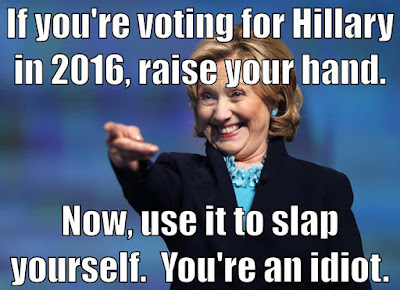
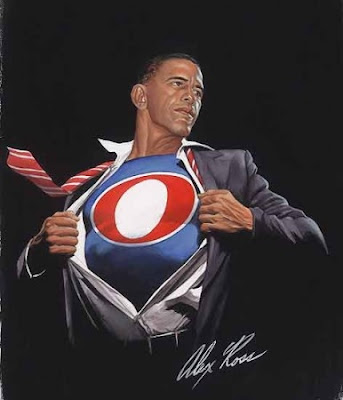
Of course the climate is changing. Anybody who says otherwise is an idiot. It always has been changing and it always will change. The question really is, Should we try to do anything significant about it?
ReplyDeleteAn incisive post that exposes the roots of climate change denial. So Exxon employed veterans of the tobacco industry because the Nicotine PR Mafia improved itself expert in deceiving the public. The same can be said of the ethyl lead industry that once upon a time used litigation to silence research on the harmful effect of leaded gasoline – a leading cause of brain damage in children.
ReplyDeleteI have been saying this for years: Too many corporations are frankly IMMORAL! Greed, profits over people, protectionism over public health, and political slush money to suppress scientific data and silence critics.
Most shocking of all, it’s not like humanity can simply board a spaceship and travel from planet to planet, spreading pollution throughout the galaxy. There is no place to go: Earth is the only home we have.
Here’s another rogue company that everyone used to think was a model corporate citizen: Volkswagon Rigged Cars to Defeat Smog Tests.
This certainly seems indicative of corporate mentality (in general) and gives evidence that corporate executives can't be trusted. As well it give strength to arguments for more strident environmental policing.
DeleteCan't believe I said that. :-)
"Can't believe I said that. :-)"
ReplyDeleteAll the more reason to accord you respect where respect is due. People who weight the evidence and travel the greatest distance are far more rational and worthy of respect than people who parrot the same talking points without weighing the data.
Jerry: The question really is, Should we try to do anything significant about it?
ReplyDeleteActually, I think the question is WILL we. And I think the answer is NO. The oil companies are too powerful. As for RN's evolved position, according to some he has now bought into the "statist alarmist" argument. An argument that "statist alarmists" are losing badly (or so I've read elsewhere). I'm sure we'd get a multi-comment screed refuting this post if someone who used to comment here had not departed.
I think you are right, Dervish. Even if we agree we should, that doesn't guarantee we will. There are many things that the majority of the American people agree we should do, that the politicians refuse to do.
Delete